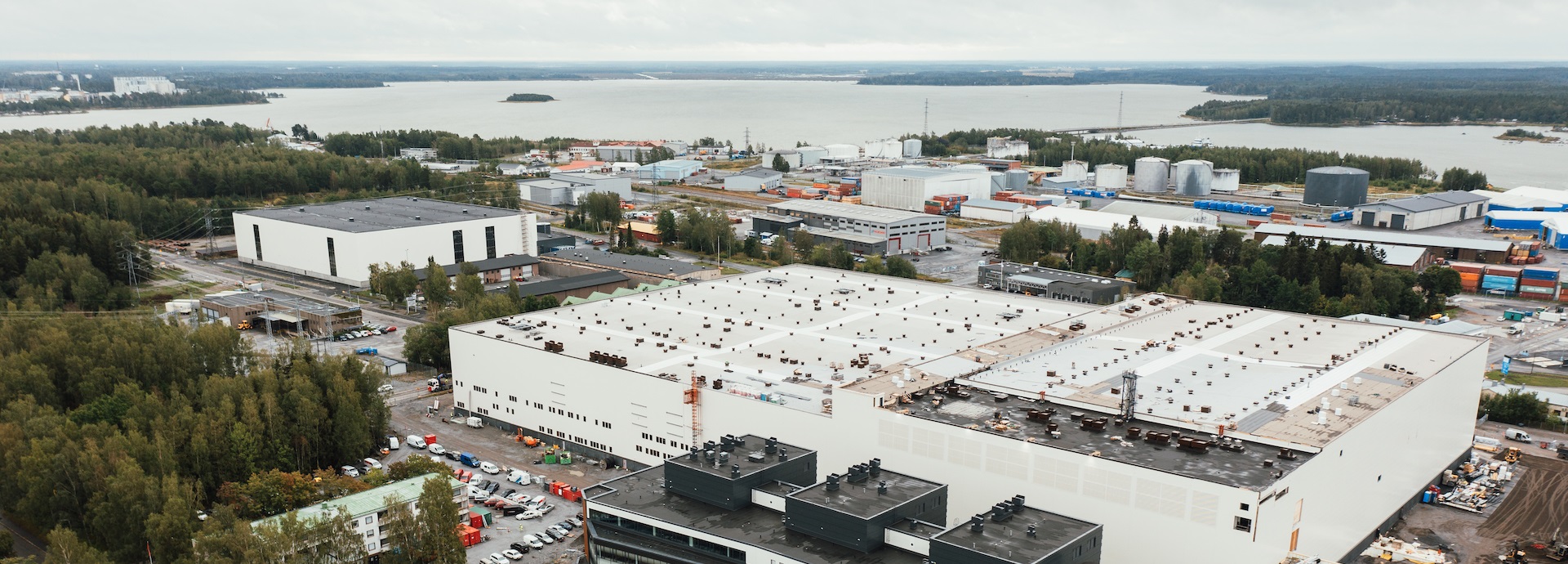

Wärtsilä’s latest Centre of Excellence will facilitate the development, testing, and validation of new solutions for the marine and energy sectors.
Wärtsilä’s new Smart Technology Hub in Vaasa, Finland, is an integrated centre of research, product development and production. It’s a place where companies, organisations, start-ups, and academia can come together, share learnings, and co-create new solutions for the maritime and energy industries – all the way from concept to testing and validation.
“The co-creation model will enable us to rise above our competitors. We aim to be a reference and an example to others,” says Juha Päivike, Director of the Smart Technology Hub project.
Wärtsilä first announced the construction of the Technology Hub in 2018. By the end of 2021, construction work will be completed, and the inauguration of the Technology Hub is planned for the spring 2022. The new facility is a tangible part of Wärtsilä’s goal to build sustainable societies through innovation in the marine and energy sectors. It will link the two business sectors together to advance ecosystem thinking and a future beyond fossil fuels.
“We want to create energy systems that operate with 100% renewable energy,” says Päivike. “In our product development, emphasis will be on green fuels and the optimisation of entire technology systems.”
Energy-efficient and connected with the world
The Technology Hub is not only a place for state-of-the-art production, but also a platform for top-notch research, development and engineering linking together Wärtsilä’s other global Centres of Excellence. Comprised of testing laboratories, advanced manufacturing systems and the Smart Partner Campus, the Technology Hub will be unique in its field. The Logistics Centre next to it will coordinate all Wärtsilä deliveries in Vaasa while the port of Vaasa connects the Technology Hub with the world, including the Belgian ports of Antwerp and Zeebrugge and the German port of Travemünde.
One example of this is Wasaline’s new ferry, the Aurora Botnia, which transports passengers between Vaasa and Umeå. It is also a real-life test of Wärtsilä’s products and solutions.
“Our floating test laboratory is a concrete landmark of the work Wärtsilä is doing towards the enforcement of our decarbonisation strategy, a sustainable future through the maritime industry,” says Päivike.
The Technology Hub itself will be an energy-efficient building in every sense of the word. Electricity produced while testing will be used in the Hub’s own processes. The remaining power will be fed to the grid, and residue heat will be stored and used at the Technology Hub.
“The Technology Hub will be equipped with the latest environmentally friendly solutions, and we aim to maximise the use of energy. The total efficiency of the building complex will be approximately 78%,” Päivike says.
Co-creation ecosystem
The Technology Hub forms an ecosystem that lets people around the world take part in creating sustainable innovations through co-creation and know-how provided by different partners. Equipped with Wärtsilä’s solutions, the Technology Hub will be well suited to promote cooperation between stakeholders.
“We want to facilitate winning solutions for the maritime and energy industries. The intention is to remove limitations that normally would prevent different actors from working together,” says Päivike.
Shared resources and know-how will enable the Technology Hub to develop new products and solutions faster. The Smart Partner Campus will function locally and globally – physically at the Hub, using its test laboratories and other facilities, as well as in online spaces.
“We want to foster open dialogue between partners and create a sense of trust. This is not an exclusive club situation,” says Päivike. “The ecosystem creates a space where companies who have a natural interest for co-operation and a shared vision of the outcome can take action.”
What makes the Technology Hub unique?
The agility of operations and optimised logistics concept make the Technology Hub stand out. Testing will be smooth with its state-of-the-art setup, and data analytics will have a significant role in turning data into insights.
“With the Technology Hub’s facilities and the collaboration with partners, our testing and showcasing capacities will be excellent,” says Päivike
The Technology Hub is a tangible and important step in Wärtsilä’s journey in decarbonisation transformation of both the marine and energy industries. Päivike says the base for the operations needs to be realistic, although the intention is to aim high.
“The idea is to draw a road map to idealism. We will develop existing technologies, innovate new ideas, and offer concrete solutions for our clients while taking steps toward a 100% renewable energy future.”
Did you like this? Subscribe to Insights updates!
Once every six weeks, you will get the top picks – the latest and the greatest pieces – from this Insights channel by email.
